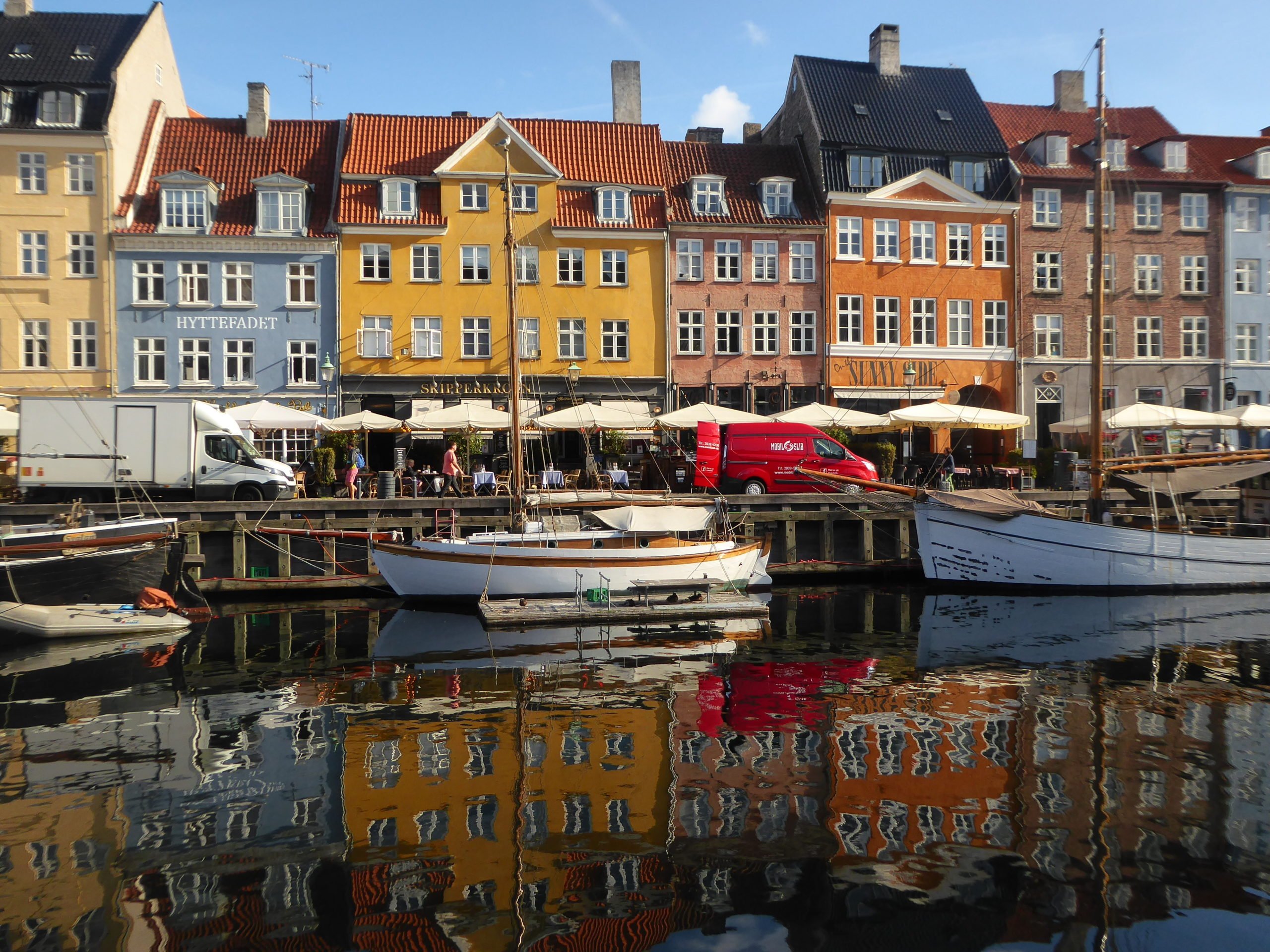Working in Denmark as a Foreigner: Salary, Network Hiring & Resume Tips 2025
Denmark’s job market in 2025 is more than a destination for a stellar work-life balance; it is a strategic move for professionals. The country's unique "flexicurity" model, coupled with a national push into green energy and a booming tech scene, creates a powerful demand for skilled international workers. This guide is for the ambitious foreigner aiming to navigate Denmark’s job landscape, from crafting the right resume to understanding the unwritten rules of networking and hiring.
Why Denmark Matters Now for International Professionals
The Danish labor market is in a phase of targeted growth, with a clear focus on addressing skill shortages. The latest data from July 2025 shows a significant expansion of the Positive List for People with a Higher Education, which now includes 162 job titles, and a list for Skilled Work with 48 job titles. This list is a direct signal of where the government sees critical skill gaps and a key resource for your job search.
This isn’t a market that rewards a passive approach. With GDP growth projected to moderate to 2.9% in 2025 (IMF), employers are highly selective. They are looking for talent that can immediately contribute to their priorities, especially in sectors where Denmark is a global leader, such as renewable energy, biotech, and IT.

The famous Danish flexicurity model underpins this system. As described by the Danish Ministry of Employment, it combines a flexible labor market with a robust social safety net for employees, a "golden triangle" that makes the labor market resilient and open to change. This model also makes Denmark an appealing place for foreign workers, with a strong focus on worker rights and support.
Understanding Salary Expectations in Denmark 2025
Danish salaries are competitive and reflect the country's high cost of living and robust social security system. While there is no official statutory minimum wage, wages are determined through collective bargaining agreements between employers and trade unions (DA.dk). This ensures fair pay across sectors. A recent analysis indicates the average employee earns around DKK 48,572 per month before taxes, which includes pension contributions (Remote People).
Here are some average monthly salary ranges to help set your expectations for 2025, based on current market data:
- Software Developer: DKK 45,000 - 60,000
- Civil Engineer: DKK 48,000 - 58,000
- Data Scientist: DKK 50,000 - 65,000
- Mechanical Engineer: DKK 47,000 - 57,000
These are averages and can vary significantly based on your experience, the company's size, and the location. To get a precise benchmark for your specific role, you can use Drjob’s completely free AI Salary Checker .
The Power of Network Hiring in Denmark

In Denmark, a significant portion of jobs are filled through referrals. According to Danmarks Statistik, about 33% of jobs are filled through personal contacts, a number similar to jobs filled through advertisements. This is not just a statistic; it is a core part of the culture.
To get a foothold, you must actively build a professional network. Here’s how you can make a genuine impact:
- Engage with Industry Events: Denmark’s business culture is built on trust and personal relationships. Attend meetups, seminars, and conferences relevant to your field. These events are not just for learning; they are the primary venues for meeting potential employers and collaborators. For more tips on building professional relationships, read our blog on 7 Ways to Improve Your Soft Skills before Graduation.
- Proactively Connect: Reach out to professionals in your field. A well-written, concise message on professional platforms, expressing your genuine interest in their company or work, can lead to a conversation.
- Leverage Communities: Join expat groups or international professional associations in Denmark. These communities provide valuable insights, support, and connections that can open doors to opportunities.

Crafting a Danish-Standard Resume for 2025
Danish employers value clarity, conciseness, and relevant achievements over lengthy, verbose resumes. Your resume must be tailored to the Danish professional context to stand out.
- Structure: Use a reverse-chronological format, highlighting your most recent experience first. Keep it to one or two pages. For guidance on formatting, see our blog on 10 Free One-Page Resume Templates for a Quick and Easy Job Search.
- Content: Focus on quantifiable achievements. Instead of listing responsibilities, describe what you accomplished. For example, rather than "Managed a project," write "Managed a project that increased efficiency by 15%."
- Personal Information: A professional photo is optional but can be included if it aligns with industry standards.
- Languages: Clearly state your language proficiency. Even if English is the primary language of the workplace, demonstrating a desire to learn Danish is seen as a major asset and can even boost your earning potential .
- References: Do not include references on your resume. Simply state, "References are available upon request" at the end.
This streamlined approach shows respect for the recruiter's time and reflects the Danish preference for direct, factual communication.

Navigating the Danish Job Interview Process
The interview process in Denmark is often less formal and more collaborative. It’s a two-way street where both you and the company assess the cultural fit.
- Be Prepared for Behavioral Questions: Danish recruiters focus on your personality and how you work in a team. Be ready to share specific examples of how you've handled problems, collaborated with colleagues, and contributed to a team's success.
- Cultural Fit is Key: The flat hierarchy of Danish workplaces means you're expected to contribute your ideas regardless of your position. Show that you are a proactive team player.
- Prepare Questions: Asking well-thought-out questions demonstrates genuine interest. Ask about the team, the company's vision, or how your role contributes to its long-term goals.
To practice for this unique approach, you can use Drjob’s completely free Interview Prep Tool to simulate an interview and refine your responses. For more general interview advice, read this blog on lack of a profile .
Essential Information for Working and Living in Denmark
Beyond the job itself, Denmark offers an unparalleled work-life balance with a standard 37-hour work week. Punctuality is paramount, and working late is often seen as a sign of poor time management. English is the universal business language in most major companies, making the transition seamless for many international professionals.
According to an EURES report, foreign nationals constitute around 12–13% of the Danish workforce, reflecting the growing role of international talent (EURES). This shows a commitment to attracting and integrating foreign professionals.
Explore opportunities in these and other growing sectors now on Drjob Pro.

Myths or Misconceptions About Working in Denmark
A common misconception is that you need to speak fluent Danish to find a job. While learning the language can give you a significant competitive edge, a large portion of the business world, especially in tech and international companies, operates entirely in English. The key is to show a willingness to integrate and learn. As one expat forum user put it, "Every foreigner I know regrets not learning Danish sooner”. Another myth is that the high taxes mean you will not have a good disposable income. While taxes are high, they fund the social security and public services that provide a high quality of life and financial security.

FAQ: Working in Denmark as a Foreigner
Q: How to find work in Denmark as a foreigner? A: Focus on networking and a targeted job search. Use job portals like Drjob Pro, and ensure your resume is tailored to Danish cultural expectations. Actively build your professional network through online platforms and industry events.
Q: Average salary in Copenhagen for expats 2025? A: Salaries in Copenhagen are generally higher than the national average due to the higher cost of living. For a detailed breakdown by sector and experience, use Drjob's completely free AI Salary Checker to get a more accurate estimate.
Q: Do I need to speak Danish to work in Denmark? A: No, you do not need to speak Danish for many roles, especially in large international companies. English is the primary business language in a significant portion of the workforce. However, learning Danish is highly recommended and can improve your job prospects and salary potential.
Q: Where can I find official information about work permits and visas in Denmark?
For an official overview of work permit details and visa eligibility paths, you can check the nyidanmark.dk website.
Conclusion
Working in Denmark as a foreigner in 2025 is a strategic and rewarding career path. The country's demand for international talent, combined with its unique blend of a flexible labor market and a high quality of life, presents a powerful opportunity. By understanding the local hiring norms, tailoring your resume, and focusing on building a professional network, you can position yourself for success.
➜ Apply now on Drjob Pro
About the Author
Suleiman Alnsour, Career & Market Analyst at Dr. Job
Suleiman Alnsour is a Career and Market Analyst at Dr. Job. With six years of hands-on experience in digital and technology fields, his insights are shaped by extensive research into global employment trends. Suleiman closely tracks local industry demands, government initiatives, and key economic shifts that impact professionals tailoring advice by country. Passionate about empowering job seekers, he provides actionable guidance that connects individual skills to market needs, helping people find meaningful opportunities and build fulfilling careers.








 2025-10-20
2025-10-20
 2025-08-14
2025-08-14
 2025-08-08
2025-08-08
 2025-08-06
2025-08-06
 2025-08-05
2025-08-05